Six Sigma Certification: How does it benefit your career & organization?
Introduction
I am sure you have heard of Six Sigma Certification. Although, if you don’t know if it’s for you, learn more about the benefits for both businesses and employees.
What is Six Sigma?
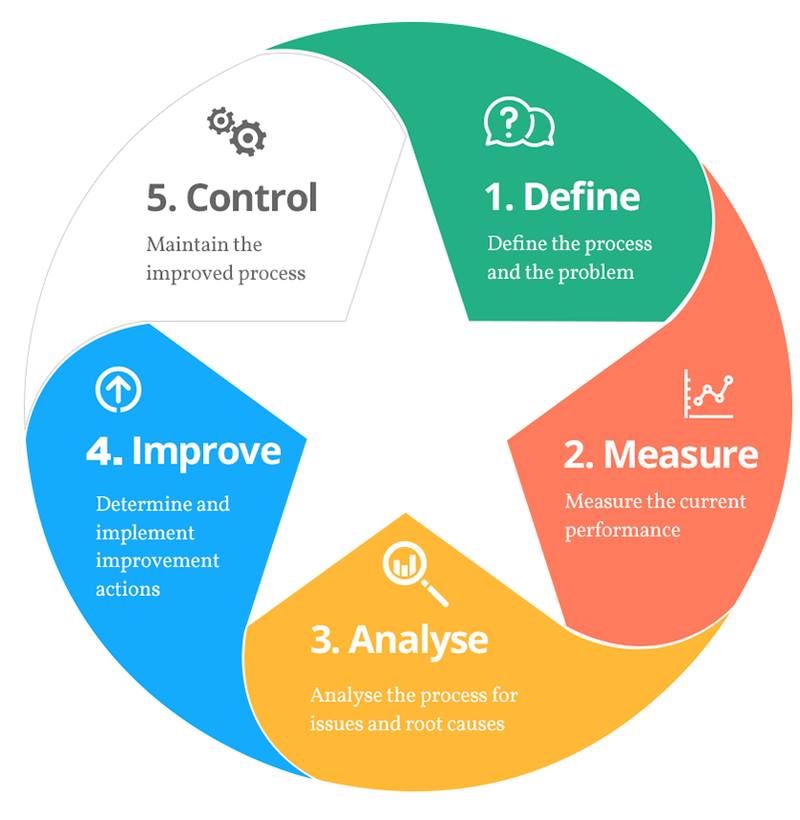
Image source: http://www.vhha.com
Six Sigma is a set of methods and tools for process improvement. Developed in 1986, Six Sigma has become a global phenomenon with companies around the world. Companies and individuals are using six sigma methodologies to improve operational efficiencies.
Six Sigma certification is great way to improve your capabilities as a leader in your organization. It helps in renovating your business processes.
The Lean method is like Six Sigma. It stresses on greatest efficiency in all characteristics of operations. Six Sigma emphasizes more on eliminating errors within processes. Lean strategy focuses on identifying needless steps that consume effort and resources.
These two methodologies offers relevant training which are in high demand across industries. These are applicable in manufacturing, finance, healthcare, IT, and more. Major benefits of Lean Six Sigma strategy includes customer satisfaction and cost reduction. It leads to revenue growth and productivity improvements.
Lean Six Sigma is a method which provides prized analytic and process skills. These skills are relevant to leadership positions. Your Six Sigma certification will give you an advantage above the competition. It is a respected accumulation to your resume. You’ll also improve upon problem solving and leadership acumen.
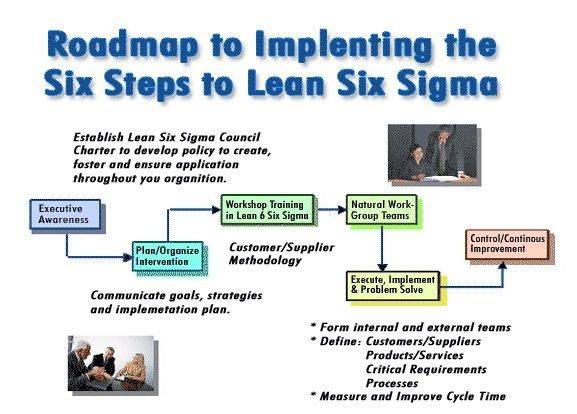
In the United States, Six Sigma Black Belt certified professionals are earning up to $167,000 USD per year. The average salary is approx $93,000 per year as per stats from Indeed.com. Another research says that Six Sigma certified Black Belts in the European countries made more than their non-certified professionals. Salaries for Master Black Belts in the United Kingdom averaged $138,851.
Here is the list with few examples of roles which might benefit from Six Sigma certification:
- Business Process Manager
- Team Leader
- Supervisor
- Manager
- Senior or General Manager
- Program Manager or Project Manager
- Analyst or Business Analyst
- Continuous Improvement Manager
- Quality Assurance Manager
You may also like - Unexpected Ways Six Sigma can Benefit your Company
Six Sigma certification
The Six Sigma certification has three levels as Yellow Belt, Green Belt, and Black Belt. It is not necessary to be certified in all three levels. You can select the level which is most appropriate to your career objectives.

Image source: https://www.qualitymag.com/articles/91484-six-sigma-redefined
Yellow Belt certification is an efficient way to learn the basics of Six Sigma. It is ideal for those who lead limited improvement projects. Those who are supporting improvement projects in a limited role in a Six Sigma team.
Green Belt certification is ideal for those who are part of a Six Sigma Management Team. Those who are assisting with data collection and analysis for improvement projects. Green Belt training will allow you to implement Lean Six Sigma proficiently.
Black Belt certification is for team leaders who manage big improvement. It also helps in problem-solving projects. At the Black Belt level, you will have a thorough understanding of all aspects of Lean Six Sigma
The impact of Six Sigma is being seen on company’s every level. This has steered it to be adopted by businesses in all types of industries.
Benefits of Six Sigma
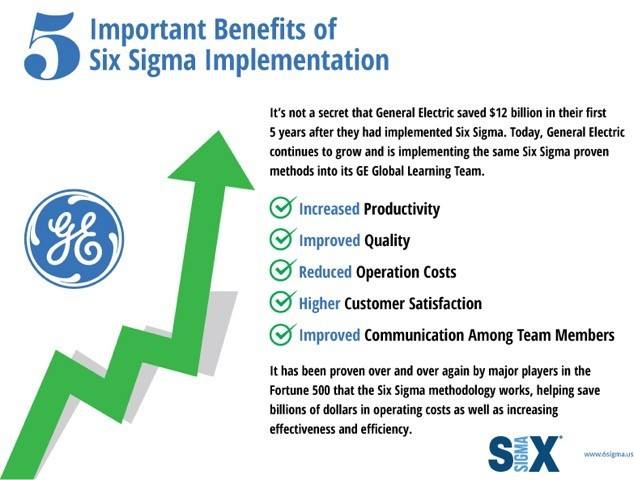
Image source: https://www.vinsys.com/blog/a-brief-introduction-to-six-sigma-green-belt-certification/
Benefits of Six Sigma to Your Career
Learning Six Sigma and applying its methodologies can have incredible impact on your future. Being able to put Six Sigma certification into your profile shows your promise to improving your business understanding and analytical abilities. Six Sigma certification makes the professional stand out from the competition.
That, can lead to better occupation chances and better salary. Additional purpose Six Sigma certifications claim so much respect is that they are not easy to achieve.

Image source: http://www.niqcgroup.com
Then, there are the real-world applications. Six Sigma Professionals are conversant in different approaches to reduce costs and increase revenue. They know how to rationalize processes and enhance staff involvement.
Six Sigma training also prepares aspirants for a leadership role. Once the Six Sigma Black Belt level is achieved, candidate is educated on the methodologies of Six Sigma. He or she is also equipped to become a change agent within their organization. They will be leading initiatives to improve processes and the quality of deliverables to the customers.
Achieving Six Sigma Black Belt status can open the doors for promotion. Also, it improves your chances of getting a better job with a different employer. A person with these skills and a Six Sigma certification is always an attractive job applicant.
Suggested read - ITIL Service Transition – Overview, Principles & Objectives
Benefits of Six Sigma to the Organization
The appropriate application of Six Sigma methodology does impact all pieces of a business. It can be enhancement of services to employees, devoting more into the final finished product. Few advantages of utilizing Six Sigma to improvise business operation are listed below-
- Customer Satisfaction: A business will implement upgraded processes and improved quality control with Six Sigma methodologies. This results in an improved finished product. That, leads to higher customer satisfaction. Customer loyalty: Happy customers are loyal customers to a brand and they come back to make future purchases. To achieve a loyal customer, the product should remain consistent in its quality.
- Improved bottom line: Good word-of-mouth references are given by happy customers. Happy customers always returns for more. All of these translates into an improved revenue stream.
- Employee satisfaction: One of the benefits of Six Sigma is how it can direct employees to a common cause. Six Sigma offers leaders a chance to clarify and rationalize the message. Also, improved results can create a sense of companionship. It leads to better results.
Better partnerships: Whenever a company does well, other companies associated with it can leverage improvements. This can lead to long-term partnerships as well as having them adopt similar Six Sigma strategies.
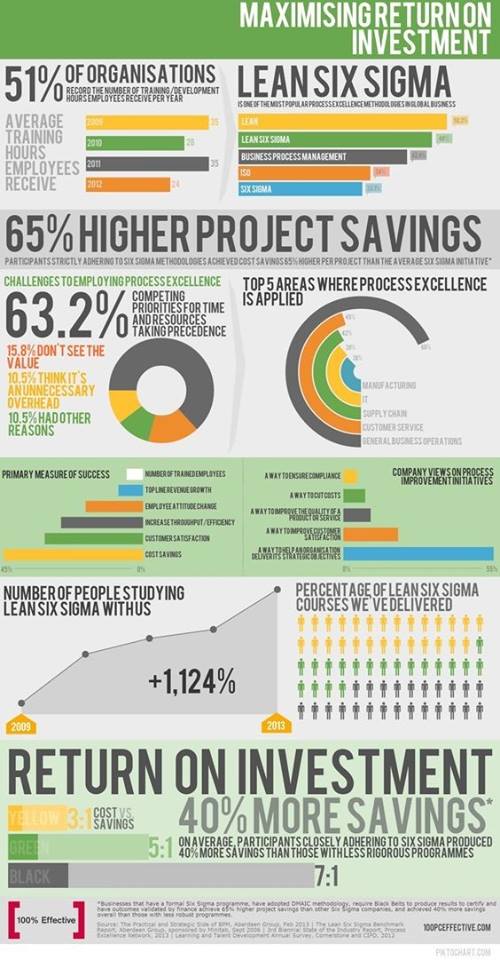
Image source: https://visual.ly/community/infographic/business/maximising-return-investment-lean-six-sigma-training
Here are 12 benefits of utilizing Six Sigma:
1. Career Advancement
The most common motive to have a certification is to progress in your career. Having that certification provides endorsement to employers that you have an explicit skill set. Competition for employment can be severe. By having proof that you have awareness and you can apply lean six sigma, can set you apart from crowd.
2. Helps Nurture Managerial and Leadership Ability
Once you achieve Six Sigma certification, you will have a thorough understanding of measuring and quantifying financial benefits. Six Sigma training makes you ready for leadership roles. With the techniques and knowhow to cut costs and increase revenue, you become a good leader. You learn ways to improve the efficiency of the business process. Those who achieve Six Sigma Black Belt are also equipped to become a change agent within the organization. They lead efforts to improve processes. They help in improving quality of products and services delivered to customers.
Financial management and risk assessment are desirable skills for middle and top-level management. Certified Six Sigma professionals get good chance of growing to senior managerial positions.
3. Standardization
There is no authorized organization that manages Lean Six Sigma certification process. The actual certification and training helps to achieve a culture for improvement. It also helps process management. Those who are aware and trained in lean and six sigma voice a similar language. They better understand the steps need to be taken to fix a process and reduce wastes.
4. Improve Business Processes and Sustain Quality Improvement
Once you get the Six Sigma certification, you’ll be able to prove that you have the knowledge. Knowledge to identify the characteristics of an organization’s business processes. You will be able to measure, analyze, control, and improve them. You will also have the capability to conduct a review of current processes. You will gain a very clear knowledge of their impact on quality performance.
You’ll also mature in the ability to achieve the level of continual quality improvement that organization needs. You will be able to observe processes closely to confirm there is no deviation from the mean. You will be able to take corrective measures in a project.
5. Excellent Salary
As per a survey carried out by indeed.com, the salary for Six Sigma certified professionals is in $100,000+ pay bracket. They are amongst the highest-paid professionals globally.
6. Applicability across Industries
What is the worth of a Six Sigma certification? Six Sigma technique applies in electronics, aerospace, banking and financial services, IT, telecom, HR, marketing, and many more industries.
Getting a Six Sigma certification can definitely lead to better job prospects. You will get better salary. Six Sigma exams are not easy to pass. This is one of the reasons Six Sigma certified professionals get so much respect. Executives and hiring managers at key companies are well aware of this fact.
With a Six Sigma certification, you will be able to focus yourself as a change agent within the organization. You will be spearheading quality improvement throughout organization. You will be strengthening your leadership qualities. Individuals certified in Six Sigma are knowledgeable in different methods to streamline business processes. Certified six sigma professionals are experts in reducing costs, and increasing revenue. These lead to a better bottom line, irrespective of the industry.
As a professional, you need to acclimatize yourself to the changing needs of your industry. You need to learn to upgrade your knowledge to different situations, no matter what industry you are a part of.
7. Ensure Compliance
With the rigorous quality standards of Six Sigma, process errors are reduced to insignificant numbers. This has meant that many of organizations apply Six Sigma when evaluating products or services. As a certified Six Sigma professional, you will be able to help organizations conform with international standards, as well as maintain profitable business.
8. Gain Hands-On Experience in Quality Management
Six Sigma certification process comprises hands-on work on business projects. It gives experience with implementation of principles to real-life situations. As a certified Six Sigma professional, you will achieve valuable experience even before you enter the industry.
9. Better Understanding
There are many professionals who have the skills and do the job as somebody who is certified. Formal training and certification provides better understanding. It teaches how to apply the methodology. People who are not acquainted with lean or six sigma may not focus on fixing the right issues. They do not know how to look for them. When teams are skilled in lean, they can be effective by concentrating on the best way to enhance their processes.

Image source: https://www.machinemetrics.com/
10. Organizational Growth
Applying lean six sigma is a recognized way to improve an organization. The company needs to have large majority of people who are trained and understand the methodology. In such a company, it is easier to drive initiatives and new projects that are designed to improve processes. Team members should be trained to have better analytical skills that can help to gauge causes and analyze them before acting on them. This way professionals attack problems and fix them efficiently.
An organization can reach its goals by eliminating wastes and promoting innovation of processes.
11. Support Your Organization Eliminate Errors
From an enterprise’s perspective, attaining a Six Sigma certification enables an individual to become vital. Individual attains the ability to identify and cut repeatable errors.
With a Six Sigma certification, individuals would be able to transform an organization to increase revenue. You will be able to identify and reduce errors. These errors would have brought poor customer satisfaction and damages to the business. Certified Six Sigma professionals can help decrease complaint resolution time, customer complaints, spending and cost overruns.
12. Improved Company Culture
Lean Six Sigma is an established methodology. It has become a culture in big organizations. Everyone in such organizations can adapt to change and contribute to the advancement of the company. Having an improvement in culture is what will really help a company. Culture propagates from the top. Leaders need to adopt a continuous improvement culture to encourage it throughout the company. By having professionals who are certified, a continuous improvement culture will be well adopted.
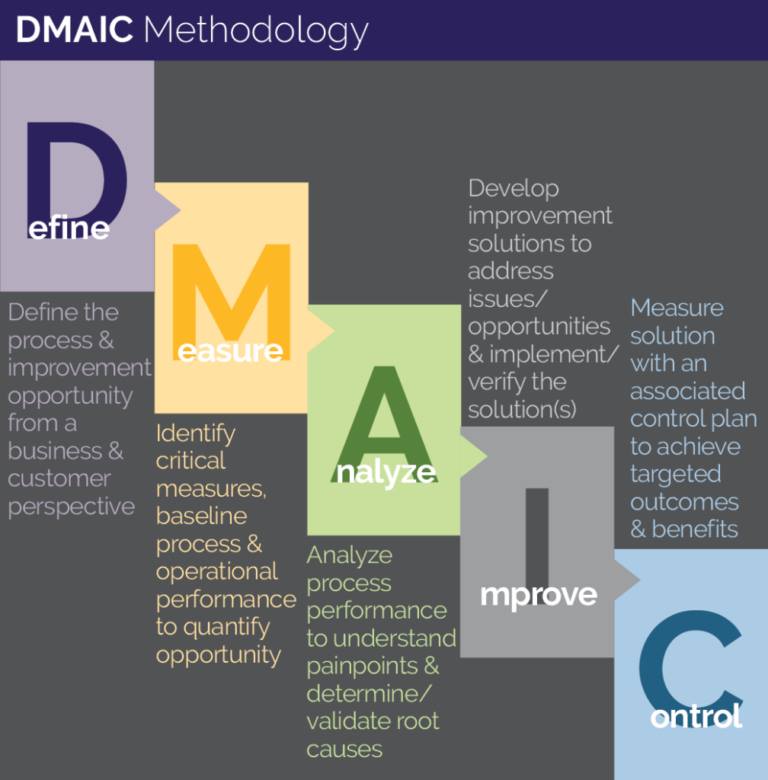
Image source: https://www.machinemetrics.com/
Becoming Six Sigma certified professional has rewards for both you and the company. Six Sigma methodologies have the capability of improving your company’s profits and making customers delighted. It will improve your marketability and probabilities of valuable employment for many years to come.
Conclusion

Image source: https://udemy.com
Customer pulse surveys suggest the reasons for their dissatisfaction. These are an annoyance with experience and employee attitude. These are given by most customers who do not return to a business. Often customers simply take their businesses elsewhere. Companies do not even know they have dissatisfied customers. Implementing Six Sigma cuts the risk of your organization having dissatisfied customers.
Professionals are requested to set SMART goals and then apply the principles of Six Sigma to those goals. This is completed by observing three key areas; learning, performance and execution.
No one actually ever grasps a final stage of learning. It is a continual process, a journey. So, don't postpone deploying Lean Six Sigma in your work area. If you don't have all the bits in place or have not been trained in all of the tools. Start the process by doing it today.
